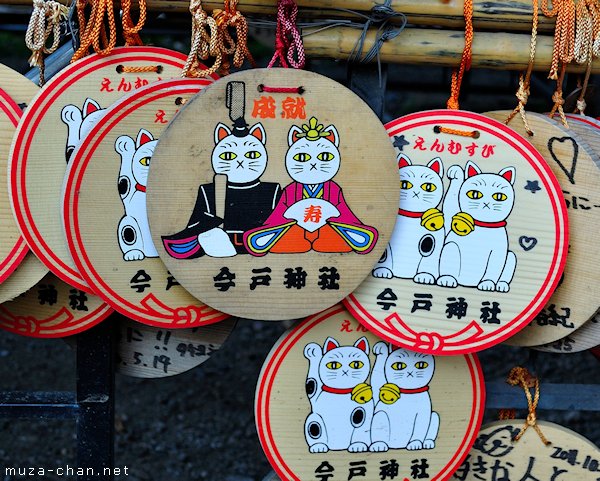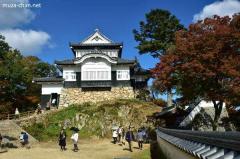Ema are Japanese Shinto wooden votive tablets, originally painted with the image of a horse. Actually, ema (written 絵馬) means “horse illustration", and their origin comes from a very old custom of donating horses to Shinto shrines, because it was believed that horses were the messengers of gods (kami). Of course, the horses were very expensive, so they were replaced with symbolic votive plaques representing a horse.
In time, the illustration and the shape of the ema was diversified, and the horse was replaced by the image of the kami, zodiacal animals or symbols of good luck, prosperity or success. The ema photographed here are from the Imado Shrine in Asakusa, Tokyo, and are representing a pair of Maneki Neko.
Click on photo for higher resolution:
If you want to license my photos for commercial use, please contact me
EXIF Info:
|
Yesterday’s Japan Photo:Bitchu Matsuyama Castle, the only surviving mountain castle |



